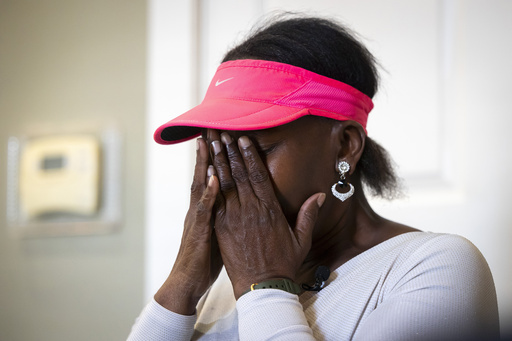
HOUSTON — As Hurricane Beryl battered Houston this summer, Kimberly Rubit was solely focused on her daughter, Mary, who has severe disabilities. The 63-year-old worked tirelessly for ten days to ensure that her 42-year-old daughter did not suffer from overheating amidst a power outage that left their home without air conditioning, water, or lights. Tragically, dozens of other residents experienced heat-related fatalities due to the prolonged blackout.
“It was miserable,” Rubit expressed. “I’m sick of it.”
Recent analyses reveal that electric grids in the U.S. are experiencing more frequent failures, leading to lengthier outages as climate change results in more severe storms and extreme weather. A recent event in the Pacific Northwest, characterized by a “bomb cyclone,” resulted in around 500,000 power outages.
Those with disabilities or chronic health issues are particularly vulnerable during outages. Many live in homes that lack proper insulation and backup power sources needed for both extreme cold and heat. Some also struggle to pay their electricity bills, according to Diana Hernandez, a sociomedical sciences professor at Columbia University who researches energy challenges in American households.
Hernandez points out that about one-third of U.S. households are either trying to avoid their power being shut off or dealing with the fallout from it. In Texas, the apprehension regarding future blackouts grows as winter nears, especially after the devastating cold snap in 2021 that left millions without power for extended periods, resulting in over 200 deaths. Despite strategies aimed at enhancing grid reliability, experts caution that similarly powerful winter storms could still lead to rolling blackouts, according to the Electric Reliability Council of Texas (ERCOT), which oversees the state’s power grid.
Hurricane Beryl’s impact extended to millions, leaving many struggling in the sweltering July heat. Local and state officials criticized CenterPoint Energy, the utility company serving Houston, for its inadequate communication, insufficient preventive measures such as tree trimming prior to the storm, and delays in repairing downed lines. The Texas attorney general is currently examining the utility’s response.
CenterPoint Energy has stated that its current priority is to enhance resilience and strengthen community outreach, aiming to establish “the most resilient coastal grid in the nation capable of withstanding future extreme weather.”
Meanwhile, discussions among Texas lawmakers center around increasing regulations for assisted living facilities. One proposal includes mandating these facilities to maintain sufficient emergency generator fuel for critical medical equipment and to ensure safe indoor temperatures during prolonged power outages, similar to regulations introduced in Florida following nursing home fatalities during hurricanes.
This month, a legislative panel also reviewed emergency preparedness measures. They found that regulated facilities and nursing homes generally performed better than senior community centers, which lack rigorous oversight, leaving many apartment complexes and private homes vulnerable to power failures and food shortages.
